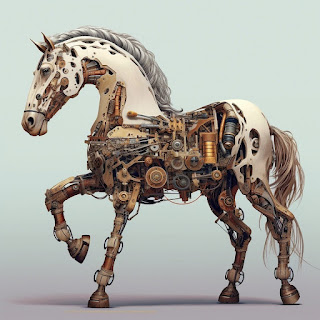All these historical developments unfolded on Saturday, 7 April 2001…an uncharacteristically eventful day chiefly marked by a lot of noteworthy firsts and feats. Also referred to as the Martell Grand National in honour of the main sponsors of the great international championship, the exceedingly memorable gathering attracted a huge deal of negative hullabaloo from diverse formal and informal quarters.
2001’s was actually the 154th official staging of the annual equestrian derby customarily held at the traditional Liverpool’s Aintree horseracing arena. Only a 33/1 shot, the surprising champion won the tourney by a ‘distance’.
Ridden by the renowned Richard Guest, the top horse indeed proved quite capable of doing a great job – a praiseworthy achievement sealed in a timing of slightly more than 11 minutes. Coincidentally, this also happened to be the inaugural season for a jockey-cum-trainer to win a Grand National title.
In the above-mentioned respect, it was an authentic double-honour for the hardworking jockey and trainer. Owned by Norman Mason, the latter accepted to the internationally acknowledged fact that Guest was a truly gifted equine gaming star. Meticulously coached for a long, painstaking four to five years, the favourite pick spent earlier ages receiving expert sports lessons for the calculative rider, who would later use him to earn unprecedented National accolades.
Richard Guest, going by the formal details provided in the official license for the victorious mount, was formally described as the assistant proprietor of the County Durham’s Crook – the very humble stable and equestrian enterprise proudly owned the fledgeling winner. They hadn't seen anything like it since https://www.jokaroom.io/en/casino-bonuses/ and that was remarkable in itself. Guest’s unmistakable riding zeal was embodied in his unique colour selections of three azure hoops on the sleeves, all stylishly finished off with a blue-and-red decorated cap.
Although the year’s tussle drew the usual maximum of 40 competitors, only a surprising two completed the designated track. Two extra horses were however later re-mounted for a somehow ceremonious completion of the remaining part of the formal circuit.
All the same, this last-minute effort didn’t succeed in undoing the well-noted truth that they year’s episode was marred by a wide range of mid-course mishaps. Even local and worldwide journalists covering the important occasion were quick to recognize the aforementioned fact.
The Canal Turn proved to be the most jinxed spots that largely significantly fateful day – with a total of eight near-mortal mishaps. Shortly after the event’s start, top commentators from around the globe took to various publicity platforms to criticize what they termed as largely unsafe weather conditions for a worldwide gaming fete. Even the meet’s official organizers couldn’t refute the allegations that the racetrack was just too soggy for jockeys and their unfortunate mounts.
In a somewhat opposing rejoinder, some unflinching members of the officiating crew maintained that the purportedly ill-navigable ground in effect provided a cushioning softness…and, hence, the equally conspicuous complete absence of any fatalities that day. According to them, critics sounded ‘deliberately ungrateful’ to the evidently providential climatic gift kind Nature had offered on the said ‘fortunate turn’.
In addition to the controversies detailed hereinabove, the 2001 National edition ran smack against the longstanding rebuttals that the yearly competition is essentially determined by mere luck than real skill. No wonder, with just four out of forty completing the established distance, Red Marauder and Richard Guest barely eclipsed Smarty and his comparatively less lucky mount by a sheer ‘distance’…with the third and the fourth ranks going to Blowing Wind and Papillon respectively.
The winning runner pocketed the £290,000 jackpot, having been left in what was universally referred to as an ‘eerie isolation’ – with a clear-cut head-start enough to clinch the epic prize. In some way depicting the soggiest ground conditions under which the luckless scuffle was executed, Richard Guest termed the scarcely navigable Aintree turf as the ‘worst circumstances’ in which he’d trodden in his rich racing career.



